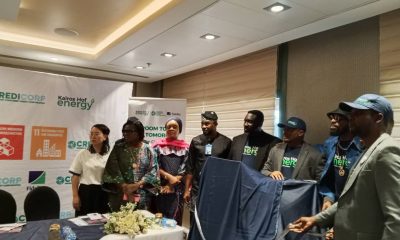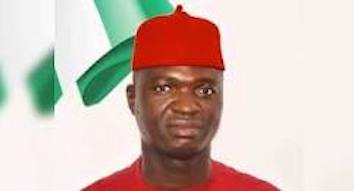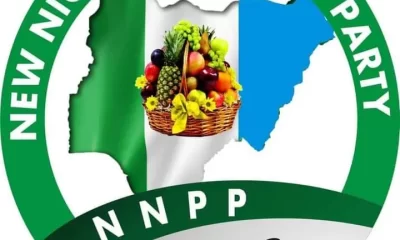FEATURES
Towards a Democracy-sensitive, People-oriented Judiciary

By Tunde Olusunle
That Nigeria’s very highly regarded *The Guardian* newspaper published a two-part editorial in the immediate past week on the nation’s judiciary, attests to the seriousness with which this arm of government is taken. *The Guardian* has deservedly earned its place in the nation’s media space, having survived four full decades, consistently making regular, daily showings on the newsstands.
This is despite the country’s unabated inclement socioeconomic situation which has summarily interred several other similar initiatives over the years. On Thursday March 16 and Friday March 17, 2023, an editorial titled “The judiciary and public criticism” featured on prominent pages of the authoritative publication. The editorial alluded to public denunciation of certain judgments delivered and actions taken, by the nation’s apex court and its leadership. Principally cited in the commentary, are pronouncements gifting Ahmed Lawan, president of the Senate, and Godswill Akpabio, former governor of Akwa Ibom state, tickets to contest the recent senatorial elections. Such appropriation was done by the Supreme Court, even when both political leaders did not participate in the primaries which would have presaged their emergence.Little known Bashir Machina had won the senatorial ticket for Yobe North, while Lawan was contesting the presidential ticket of the All Progressives Congress, (APC). Udom Ekpoudom a former deputy inspector general of police, (DIG), had also contested to represent Akwa Ibom North West zone in the senate, while Akpabio from the same zone, sought without success, the ticket of the nation’s top job. To the consternation of most followers of Nigerian politics, however, the Supreme Court ruled in favour of Lawan and Akpabio! Lyrics from *Unknown Soldier,* one of the classic hits of the maverick Afrobeat precursor, Fela Anikulapo-Kuti, appropriately capture such bewildering turn of events. Fela alludes to “government magic” which turns “red into blue and electric into candle!” The January 2020 “installation” in confounding circumstances, of Hope Uzodinma, by the Supreme Court, as governor of Imo State a few years ago, and the displacement of Emeka Ihedioha, remains fresh in popular consciousness.
Unsettled by accentuated public angst and vituperations against the Lawan/Machina and Akpabio/Ekpoudom twin-rulings, the Supreme Court through its director of information and press affairs, Festus Akande, issued a rejoinder. Titled: “Be mindful of unwarranted attacks on the judiciary,” the statement countered insinuations to the effect that sections of the judiciary had been compromised. Akande had stated that the concoctions to the effect that its justices were bought over “by some unknown and unseen persons, was nothing short of a bizarre expression of ignorance.” The release was very obviously a response to public bewilderment to the apex court’s arbitration in the substantial political litigations of Lawan vs Machina, and Akpabio vs the Independent National Electoral Commission, (INEC) and other interested parties. The Supreme Court, Dr Akande noted, was overburdened with nearly 600 cases deriving from the primaries of the various parties. The topmost arbiter in the land, Akande advanced, “was duty-bound to adjudicate on the matters brought before it to the best of its ability and in accordance with the law.”
Our recent very highly controversial and largely opaque general elections, have spawned additional responsibility for the Supreme Court. From parliamentary, to gubernatorial and thenceforth to the presidential elections, fall-outs, without doubt, will engage election tribunals and be escalated to the Supreme Court, in the weeks and months to come. Of the multilevel petitions emanating from the polls, that of the presidential election engenders the most interest and attention of Nigerians and indeed the global community. This is understandable given the pivotal place and preeminence of the president to the superintendence over, and guardianship of the people and the state. A winner, Bola Tinubu of the All Progressives Congress, (APC), was in the early hours of Wednesday February 28, 2023 returned by INEC.
There are, however, crystal clear, convincing and compelling reasons to interrogate the authenticity and veracity of the electoral exercise which produced him, in its totality. INEC which supposedly, had been preparing for the recent elections for four full years since the last general polls, pooling resources close to the one billion US dollar mark, delivered a complete sham, a shameful string of elections. INEC’s pretences and deceit of Nigerians about technological innovations to enhance and ensure seamless, fraud-proof, open, transparent and believable elections, was a colossal scam. The process was a perfidious bouquet of gross impunity, unashamed indiscretions, unparalleled and unpardonable lawlessness, unacceptable violence, brazen electoral thievery and mass disenfranchisement among others. The Centre for Democracy and Development, (CDD), reports that Nigeria’s recent electioneering, claimed 109 lives, which means more than one death per day within the period.
Mahmood Yakubu, a professor of History and INEC’s chairman for a second term of four years, delivered the most preposterous general elections this fourth republic. If the performance of Maurice Iwu, also a professor and Yakubu’s last but one predecessor was presumed controversial, Yakubu has unwittingly beatified Iwu. Yakubu’s outing fell way below the basement of global best practices. The characterisation of the elections by the local and global media, has been most unsparing. *The Economist* described the presidential election as “a chaotically organised vote and messy count.” An editorial by *The Financial Times* said the poll was “deeply flawed” and the winner “a wealthy political fixer.” *Aljazeera* wrote about “How violence robs Nigeria of their votes.” A Canadian newspaper also writes that “depression, anxiety, uncertainty be-clouds Nigeria’s political space as a drug-kingpin wins the election.”
Yakubu’s regime which popularised the culture of “inconclusive elections,” has equally introduced the dismissive expression, “go to court,” to the nation’s electoral vocabulary, in direct reference to disaffected parties. Atiku Abubakar, Nigeria’s former vice president, flew the flag of the Peoples’ Democratic Party, (PDP) at the recent presidential poll. There is substantial, even mind-boggling evidence to the effect that he won the election. Theories and hypotheses about the pre-election cannibalism of his vote tally by Peter Obi’s breakaway from the PDP to the Labour Party, (PDP), and the *G-5* governors, fall flat in the face of tangible evidence. Obi, by the way, filed his petition investigating the process of the emergence of Tinubu as president-elect, 24 hours before Atiku’s.
There is apprehension that electoral malfeasance as already committed and legalised by the issuance of the apposite “Certificate of Return,” (CoR) is *fait accompli.* Atiku, however, is calling for the withdrawal of Tinubu’s CoR, on the basis of “noncompliance with the electoral act, which invalidates Tinubu’s election.” While observing that by-passing and non-use of BVAS in the transmission of results impugned the integrity of the polls, Atiku also listed a dozen corrupt practices perpetrated by INEC to swing the election in favour of Tinubu. The suppression of votes; manipulation of ballots and ballot boxes; manipulation of BVAS machines; manipulation of accreditation and collation, and the manipulation of election material(s) delivery, feature among these infractions. Manipulation of election material(s); reverse logistics; massive thumb-printing of ballot papers, destruction of electoral materials; mutilations, cancellations; overwriting on result sheets, have also been highlighted in the petition. Atiku urges the court to either declare him Nigeria’s president or order a fresh election. Atiku’s core desire is that the votes of the people, their franchise, should count, consistent with global democratic traditions and expectations.
Flowing from recent experience where the judiciary has been repeatedly kicked around and disrespected by the executive, there are palpable concerns that the judiciary as presently constituted may not be in a position to deliver justice. The homes of revered judges and justices were breached under the cover of night in places, by operatives of the secret police, ostensibly to search for monies paid to them to influence judgements, under the present regime. The manner of the suspension, arraignment and summary retirement of Walter Nkanu Onnoghen, former CJN within the 2019 electoral season, reaffirms the dilemma of the judiciary under an all-powerful executive arm of government. There are apprehensions about the plausibility of objective, dispassionate, independent opinion and adjudication, by the Supreme Court. Yet, there is no better time for the judiciary to exercise its professionalism, forthrightness, and alignment with popular will and democracy, than at this time in our national and democratic evolution.
Certain video clips have been trending of late, depicting the incumbent CJN, Olukayode Ariwoola as presumably politically partisan. Ariwoola spoke at a banquet in his honour in Port Harcourt late last year, expressing delight that the governor of his state, Seyi Makinde, was a member of the *G-5* faction of governors in the PDP. Whereas Ariwoola said he intended to recommend to the Oyo State governor the handbook of infrastructural development in Rivers State, the manner of his expression lent itself to dialectics. There are also salient doubts accentuated by the nepotistic governmental manual operated by the outgoing President Muhammadu Buhari. Faith and ethnicity, more than anytime in our political trajectory, sadly, have played very critical roles across the broad canvas of governance and administration under Buhari.
There are reservations that justice may be difficult to get under a judiciary headed by a kinsman of the president-elect, if the latter, who hails from Lagos State, gets sworn-in. CJN Ariwoola hails from Oyo, in the same south west geopolitical zone like Bola Tinubu. An online newspaper has just reported that Ariwoola was in London on a short vacation, during which he will hold a secret meeting with Tinubu who himself was reported to have travelled to Paris earlier this week. Will all of these impact on honesty, believability and transparency at the coming arbitration? This is a unique opportunity for the judiciary to rediscover and reassert itself as the irrepressible temple of truth and justice in the service of democracy and the people.
*Tunde Olusunle, PhD, is Special Adviser on Media and Publicity to Atiku Abubakar, GCON, presidential flagbearer of the Peoples’ Democratic Party, (PDP)*
FEATURES
When Will The Road Killings Stop?

By Sale Rusulana Yanguruza
Nigeria has today counted and witnessed multiple killings of innocent people and bombings of citizens on the roads from different angles in the South and some Northern parts of Nigeria. Unfortunately, none of the perpetrators have been brought to face the wrath of the law.
In less than two months, 16 hunters were killed by mob youth in Uromi, Enugu State, and the details about those arrested and suspects are still undisclosed to the members of the public.
Their families and the Hausa people are mourning the death of these innocent individuals who were brutally killed, but the silence of the government is devastating. Even the compensation that Governor Abba Kabir Yusuf promised and requested from the Edo State government is still unclear to the members of the public.The most devastating aspect of the road killings is that most of the victims are Hausa or Muslim, simply because they are from the North. How can traveling on the roads be a reason to kill a citizens? Why are Hausa and Muslim individuals always the victims ? Is it only hausa people traveling by the road in Nigeria?
Even though the answers that these youths usually give is that Fulani and terrorists are killing them overnight, that is not a reason to block roads and kill innocent people. They should know that Zamfara, Katsina, Kaduna, Niger, and Borno States are facing insecurity challenges like kidnapping, Boko Haram and Fulani clashes for over a decade, but none of the people from these states view a particular tribe or religion as the cause and use roads to kill innocent people.This act should be stop!
No doubt, Constitutionally, every individual in this country is entitled to move anywhere and leave wherever he/she wish to leave but unfortunately for Hausa and some Muslim individuals, traveling by road seems to be considered a sin by some youth, leading to serious punishment, which is barbaric killings by their so-called fellow citizens who do not have emotional feel for human being and their compatriots citizens .
I believe that in Nigeria, no tribe is exempt from traveling from one place to another. However, it’s saddening and regrettable that the Hausa people are disproportionately affected and become victims of road killings, and the government is still yet to take necessary actions to deal with such inhumane and unfathomable actions carried out by some groups.
The most terrible and gruesome aspect of such acts is that every day, the situation rises to an unbearable and unacceptable level. It’s imperative and necessary for the government to end these ongoing road killings before it will escalate to an uncontrollable level.
The government shouldn’t limit its activities to only condemning and sending condolence messages to the families victims of these inhumane and unfathomable killing of innocent people; actions must be taken, and the punishment of those involved in such road killings must be brought to public eyes.
No doubt, swift punishment would aid in reducing these ethno-religious killings in the country and would serve as a reference and warning to such mob groups that the government is prioritizing and exercising its constitutional duties as a government in protecting the lives of its citizens who are brutally killed and burned.
Doubtless, Most of the victims are from Kano State, where the majority of travelers from all 36 states enter the state everyday to carry out their business activities, considering the state as a center of commerce. Still, none of the travelers from other ethnic groups were killed and burnt in Kano. Why do some groups choose to reward these people with the killings of their own brothers and sisters ?
It’s very alarming to note the numbers of Northerners killed simply because they’re traveling is rising every month, with no concrete reasons to justify their offenses, but merely due to their identity as Northern Muslims or Hausa by tribe. Additionally, Truck drivers have continuously faced these killings over the past eight years, yet no actions have been taken to avert further escalation and end it permanently.
In one editorial written by a popular newspaper in Nigeria, it’s reported that over 50 drivers have been killed and even burned their goods with some still missing due to this animalistic attitude of road killings. In May 2022, a pregnant woman, Harira Jubril, 32, and her four children were killed in the Orumba South Local Government Area of Anambra State. Even those who committed this act haven’t faced the wrath of the law.
One may ask: Is the government truly ready to end these barbaric killings that keep surging towards a particular or specific religion or tribe? Regrettably, in 2023, a group of mob killed about 20 people who were going for religious activities. All of them are Muslims. But who are the suspects, where are they, and what actions has the government taken on the perpetrators?
The people who killed those going to Maulud are the same people who recently killed those going for a wedding in a University Bus carrying the name of Ahmadu Bello University Zaria written in bold with a plate number to stop them and killed and burnt the car . What offense do they commit? How can a University bus carry terrorists and travel on the roads? The most disheartening aspect of these barbaric and animalistic acts is that they’re killing and burning people and still celebrating the deaths of these individuals; taking video footage-How heartless!
Do you think the government punishes those who killed the people going for Maulud, the Uromi 16, Harira Jubril and her four children, in public? The mob group would never dare attempt to do it again, sadly what is happening now is worrisome because the inactions is making the situation to take another dimension.They may believe that since several incidents, no actions have been taken to punish and bring them to book publicly, so it’s okay to repeat it again.May be it’s for this reason, recently, some of the mob group from Benue state killed Jamilu Ahmad and Barhama Suleiman who are from Kano State just in less than a week plateau group killed 13 and injured others.
Advisedly, the government and stakeholders must come up with security strategies and measures that will bring an end to these road killings. This can be achieved by updating the public about those arrested and who committed this animalistic act, to bring them to book and let the world know they have been punished.It’s notable that they celebrate the killing of people, take videos, and share them publicly, showcasing what they’ve done. If they can confidently act in such a manner, why is the government not updating the public about what happened to them after they’ve been arrested and taken to court?
| ReplyReply allForwardAdd reaction |
FEATURES
Broken Trust: How Banking Policies Are Failing the Nigerians

By Princess Ngozi Ibiwari Odibueogwu
In a nation still battling economic disparity, inflation, and a fragile middle class, one would expect that accessing basic financial services would be seamless, especially for loyal customers. Unfortunately, that is not the case for qmany Nigerians, particularly those who operate personal accounts for genuine and honest purposes.
Recently, I had a sobering experience that all reflects a disturbing trend in our financial system.
After using my bank account for nearly seven years, I returned to the bank to upgrade and reactivate the account, which had gone dormant. To my utter dismay, I was informed that in addition to submitting valid identification, I would also need to swear a court affidavit—a legal document requiring time, effort, and money.When I questioned the rationale for this requirement, the response was simply: “It’s for verification; we need to be sure the documents are real.” Real? Documents from the same customer who has been with the bank for years? The logic was not only baffling but dehumanising. I walked away not just inconvenienced, but heartbroken by the realization that our banking policies often treat law-abiding citizens with undue suspicion.
Here lies the bitter irony: while ordinary Nigerians are made to jump through hoops to access accounts holding their hard-earned money, individuals with questionable wealth—sometimes amounting to billions—are rarely asked to swear affidavits about the source of their funds.
We have seen how some bank accounts linked to fraud or corruption contain obscene amounts of money, yet those individuals are not required to bring affidavits from courts.
They are not told their documents need “verification” or that their banking activities are under scrutiny. Instead, they are welcomed with open arms—given VIP treatment, sometimes with personal relationship managers and zero friction.
What then is the role of our banks? Are they truly serving the public interest, or have they become gatekeepers for the elite and tormentors of the average Nigerian?
A System Designed to Discourage the Honest
Banking institutions are supposed to be facilitators of progress. They are entrusted with the savings of the people and expected to empower citizens by providing fair access to services. Instead, they often impose tedious bureaucracies that frustrate genuine customers. From endless paperwork, slow customer service, hidden charges, and now, legal hurdles like affidavits for simple account updates, the system increasingly feels like it was designed not to serve, but to discourage.
Imagine a widow trying to withdraw the savings of her late husband only to be asked for court affidavits, local government certificates, next-of-kin letters, and even publication in a national newspaper—just to access N200,000. Now contrast that with a politically exposed person accused of corruption who moves N10 billion through multiple shell accounts with barely a raised eyebrow. Where is the justice?
The Failure of KYC in Practice
The Central Bank of Nigeria (CBN) mandates banks to implement Know Your Customer (KYC) protocols. This is meant to combat money laundering and financial crimes. However, in practice, KYC seems to only apply strictly to the poor. The elite are rarely subjected to the same rigorous checks.
A tailor who wants to open an account is asked to bring utility bills, a referee, BVN, two passport photos, and in some cases, a letter from a religious leader. But someone who wants to deposit ₦500 million in suspicious cash? They are offered a cold drink and guided to a private room. This double standard perpetuates distrust and creates a class divide in a system that is supposed to be inclusive.
Trust: The Missing Currency
Banking, at its core, is built on trust. People deposit their money with the belief that the bank will protect it and treat them with fairness and dignity. But when honest citizens are treated like criminals, while the actual financial criminals are treated like royalty, that trust is destroyed.
Many Nigerians, especially those in rural and semi-urban areas, no longer see banks as allies. This is one of the reasons informal savings groups and “ajo” cooperatives are still thriving despite their risks because they treat people like people, not like suspects.
The Call for Reform
It is time for Nigeria’s banking industry to reflect and reform. Policies must be reviewed not only for compliance but for compassion. The regulators CBN and the Nigerian Deposit Insurance Corporation (NDIC)—must hold banks accountable, not just in terms of capital reserves and risk exposure, but in how they treat their customers.
We need policy frameworks that protect both national security and human dignity. Yes, verification is important, but it should be proportional and reasonable. It should not place undue burden on the very people the banks are meant to serve.
Conclusion: Build for People, Not for Profit Alone
Nigerians are not asking for special treatment. We are simply asking to be treated fairly. For too long, our financial systems have rewarded dishonesty and punished integrity. This must change.
The next time a customer walks into a bank to reactivate their account, they should be greeted with respect and efficiency—not suspicion and red tape. And the next time a massive deposit is made without a credible source, it should trigger the same level of scrutiny—if not more.
Because justice should not be for sale, and trust should not be broken especially by the very institutions we depend on.
| ReplyReply allForwardAdd reaction |
FEATURES
Examining Nigeria’s Approach to Defeating Sickle Cell Disease

Each year, the globe commemorates World Sickle Cell Day (WSCD) on June 19, an event to raise awareness about Sickle Cell Disease (SCD), one of the most common hereditary blood disorders in the world.
The theme of the global observance for 2025 is “Global Action, Local Impact: Empowering Communities for Effective Self-Advocacy”, resonating across the corridors of academia, clinical settings and advocacy platforms.
SCD is a group of inherited blood disorders characterised by abnormally shaped red blood cells that resemble crescents or sickles.
The cells can block blood flow, causing severe anaemia, episodes of severe pain, recurrent infections, as well as medical emergencies like strokes, sepsis or organ failure.
In Nigeria, home to the largest population of people affected by SCD, the day carries a deeper, more urgent significance.
The burden of Sickle Cell Disease (SCD) in the country continues to strain the nation’s healthcare resources and families affected by the disorder.
This growing challenge calls for comprehensive and sustained intervention across prevention, treatment and education.
Without urgent action, including newborn screening, public awareness and access to advanced therapies, the impact on families and the healthcare system will continue to deepen.
It is a timely call for national unity in curbing the spread of this life-altering disease and improving the lives of those who live with it daily.
With an estimated 150,000 Nigerian children born each year with the disorder, according to Harvard’s Dr Maureen Achebe, the country finds itself at the epicenter of a public health crisis.
While prevention remains the ideal, early diagnosis through newborn screening is a practical and effective tool that could reduce mortality among children under five.
Achebe, a renowned hematologist and global health equity advocate from Harvard, said “these babies look normal at birth”, warning that without early detection, mortality rates could reach 50–80 per cent before the age of five, a heartbreaking figure in a country with already strained healthcare infrastructure.
“Newborn screening helps identify those with SCD early so they can receive care and therapy to live normal lives,” she added.
She advocated nationwide newborn screening programme, alongside routine preventive care such as vaccination, folic acid supplementation, and prophylaxis against infections like pneumonia and malaria.
She also dispelled cultural myths surrounding the disease, stating unequivocally that SCD is an inherited genetic disorder, not a curse or result of witchcraft, a reminder of the persistent social stigma surrounding the condition in many communities.
At the heart of Nigeria’s strategy to reduce the prevalence of SCD is prevention, and according to Prof. Patricia Lar, Acting Vice-Chancellor of Yakubu Gowon University, Abuja (formerly UniAbuja), genetic compatibility awareness must be the foundation of preventive approach.
Lar spoke through Prof. Titus Ibekwe, the Provost of the College of Health Sciences, during a public lecture titled “The Evolving Therapeutic Landscape in Sickle Cell Disease,”
She emphasised the importance of prevention as the most effective strategy in eliminating Sickle Cell Disease (SCD) in Nigeria.
She stressed that “seriously considering partner compatibility could reduce the disease to only carriers, discouraging marriages between incompatible partners.
“If we maintain this precautionary measure over time, we will be able to eliminate SCD or reduce it to a minimum world-wide ,” she added.
This message is echoed in the advocacy efforts of Mrs Aisha Edward-Maduagwu, the National Coordinator of the Association of People Living with Sickle Cell Disorder.
She called for the strict enforcement of genotype compatibility checks, especially in states like Anambra, where legislation exists but implementation lags.
“Our association has made significant strides advocating for the rights and welfare of people living with SCD.
“We urge prospective couples to prioritise genotype testing and ensure compatibility before marriage,” she said.
Beyond bone marrow transplants, gene therapy is emerging as the next frontier, according to Lar.
“This revolutionary treatment aims to correct the sickle cell gene itself, potentially offering a one-time cure.
“This is where the future of SCD treatment lies,” she noted. “It modifies the faulty gene to function like a normal gene, potentially eliminating the disease at its source.”
In recent years, the emergence of curative treatments, though limited by cost, has brought renewed hope to families affected by SCD.
The Lagos State University Teaching Hospital (LUTH) has taken significant steps forward, with successful bone marrow transplants performed since 2024.
Dr Adeseye Akinsete, a pediatric hematologist at LUTH, confirmed that all transplanted patients are alive and well, and that the centre is preparing for a third cycle in August 2025.
“This represents a major breakthrough in the country’s medical landscape.
“We are proving that advanced therapies can be delivered locally. Nigerians are beginning to trust and participate in these programmes,” he said.
Akinsete added that LUTH also offers post-transplant support services, including virtual consultations for patients outside Lagos, and has established a dedicated transplant clinic that follows up with patients who received care both locally and abroad.
The Centre of Excellence for Sickle Cell Disease Research and Training (CESRTA) at Yakubu Gowon University is playing a pivotal role in bridging the gap between research and care.
Since its inception in 2015, CESRTA has worked to provide clinical and translational research, skills training, and community outreach.
Prof. Obiageli Nnodu, CESRTA Director and Co-Chair of the 5th Global Congress on SCD, highlighted the Centre’s collaborations with both local and international partners and its mission to make advanced SCD care more accessible and affordable.
Following the recent global congress, the Coordinating Minister of Health and Social Welfare, Prof. Muhammad Pate, announced the upgrading of CESRTA to the National Centre of Excellence for SCD Research and Training, recognising its impact on national policy, research, and education.
In spite of the scientific and medical advances, the social and economic barriers to quality care for SCD patients remain significant.
Dotun Oladipupo, Chairman of the Oladipupo Foundation in Abeokuta, medication for managing sickle cell was extremely expensive.
“Many families cannot afford life-saving therapies. This must change.”
Oladipupo called on the Federal Government to invest more in alternative medicine research, as well as to promote inclusive legislation that gives people with SCD access to equal job opportunities, education, and healthcare.
“We also need bills that protect the rights of those living with the disease, so that stigma and discrimination no longer define their everyday experience,” he said.
The unifying thread running through the events, speeches, and expert recommendations marking World Sickle Cell Day 2025 is clear: community empowerment is essential for lasting change.
Whether through genotype testing campaigns, newborn screening, accessible treatments, or public education, the solutions must be people-centered and government-supported.
As Nigeria leads the global conversation on SCD by necessity, it must also lead by example, transforming advocacy into action, policy into practice, and awareness into impact.
There is hope. There is progress. But more importantly, there is a renewed determination to ensure that future generations are born not just with knowledge of SCD, but with the power and tools to defeat it.(NANFeatures)



























